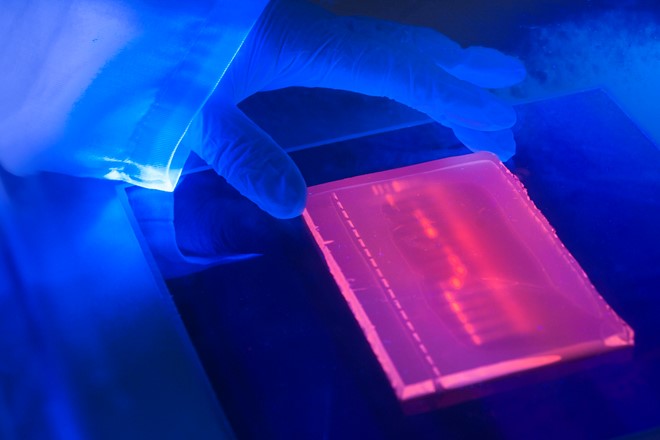Autolus Therapeutics plc (Nasdaq: AUTL), a clinical-stage biopharmaceutical company developing next-generation programmed T cell therapies, announces publication of AUTO6 (1RG-CAR T) Phase 1 data in Science Translational Medicine. AUTO6 is a second generation GD2-targeting CAR T candidate, developed in collaboration with UCL, and the trial was sponsored and run by Cancer Research UK’s Centre for Drug Development.
These new results highlight that AUTO6 can induce rapid regression of bulky disease in a solid tumor setting without inducing on-target off-tumor toxicity, despite dose dependent CAR T expansion. CAR T cell expansion was observed in all six patients treated at the higher cell dose cohorts in this Phase 1 study. Three of these six patients demonstrated evidence of transient CAR T cell activity, including cytokine release syndrome, and regression of soft tissue and bone marrow disease activity. The GD2 binder used in AUTO6 has been designed to minimize on-target off-tumor neurotoxicity associated with GD2 expression at low levels in pain fibers and the brain. Despite the presence of clear CAR T cell activity, no neurotoxicity was observed. The publication also suggests that, whilst AUTO6 is a valid and safe strategy for targeting neuroblastoma, further modifications are required to promote CAR T cell persistence and induce deeper and more durable responses for these patients.
“We are encouraged by the anti-tumor activity in neuroblastoma, a disease where there are limited therapeutic options for children with relapsed or refractory disease,” said Dr Karin Straathof, Consultant Paediatric Oncologist and research group leader at UCL Great Ormond Street Institute for Child Health. “This is of particular importance as this activity was observed in the absence of neurotoxicity which occurs with antibody-based approaches that target GD2.”
Nigel Blackburn, director of drug development at Cancer Research UK, said, “Children who have hard to treat, or relapsed cancer have limited treatment options open to them, and early results of AUTO6 are encouraging. We look forward to seeing the next steps in the development of AUTO6NG, and if the treatment has durable effects in neuroblastoma.”
“This is amongst the clearest data which demonstrate that CAR T cells can be highly active against advanced solid cancers,” said Dr Martin Pule, CSO and founder of Autolus and director of the UCL CAR T programme. “It is encouraging that highly active CAR T cells do not cause on-target off-tumor neurotoxicity and the findings represent an important step in our ongoing efforts to develop CAR T cell therapies for solid cancers.”
These data support Autolus’ continued development of AUTO6NG, which builds on this approach utilizing the same GD2 CAR alongside additional programming modules designed to enhance efficacy and persistence. Earlier this year at the American Association for Cancer Research (AACR) meeting, Autolus announced a preclinical data update demonstrating the validity of GD2 as a CAR T target in small cell lung cancer (SCLC) and the ability of Autolus’ efficacy-enhancing modules to drive in vivo efficacy in an SCLC mouse model. The data also suggested AUTO6NG can overcome the immune suppressive mechanisms in the tumor microenvironment. Autolus plans to test AUTO6NG in a Phase 1 study in 2021.
About Autolus Therapeutics plc
Autolus is a clinical-stage biopharmaceutical company developing next-generation, programmed T cell therapies for the treatment of cancer. Using a broad suite of proprietary and modular T cell programming technologies, the company is engineering precisely targeted, controlled and highly active T cell therapies that are designed to better recognize cancer cells, break down their defence mechanisms and eliminate these cells. Autolus has a pipeline of product candidates in development for the treatment of haematological malignancies and solid tumors. For more information please visit www.autolus.com.
ABOUT UCL BUSINESS PLC
UCL Business PLC (UCLB) is a leading technology transfer company that supports and commercialises research and innovations arising from UCL, one of the UK’s top research-led universities. UCLB has a successful track record and a strong reputation for identifying and protecting promising new technologies and innovations from UCL academics. UCLB has a strong track record in commercialising medical technologies and provides technology transfer services to UCL’s associated hospitals; University College London Hospitals, Moorfields Eye Hospital, Great Ormond Street Hospital for Children and the Royal Free London Hospital. It invests directly in development projects to maximise the potential of the research and manages the commercialisation process of technologies from laboratory to market. For further information, please visit: www.uclb.com Twitter: @UCL_Business
ABOUT CANCER RESEARCH UK
- Cancer Research UK is the world’s leading cancer charity dedicated to saving lives through research.
- Cancer Research UK’s pioneering work into the prevention, diagnosis and treatment of cancer has helped save millions of lives.
- Cancer Research UK has been at the heart of the progress that has already seen survival in the UK double in the last 40 years.
- Today, 2 in 4 people survive their cancer for at least 10 years. Cancer Research UK’s ambition is to accelerate progress so that by 2034, 3 in 4 people will survive their cancer for at least 10 years.
- Cancer Research UK supports research into all aspects of cancer through the work of over 4,000 scientists, doctors and nurses.
- Together with its partners and supporters, Cancer Research UK's vision is to bring forward the day when all cancers are cured.
For further information about Cancer Research UK's work or to find out how to support the charity, please call 0300 123 1022 or visit www.cancerresearchuk.org. Follow us on Twitter and Facebook.


